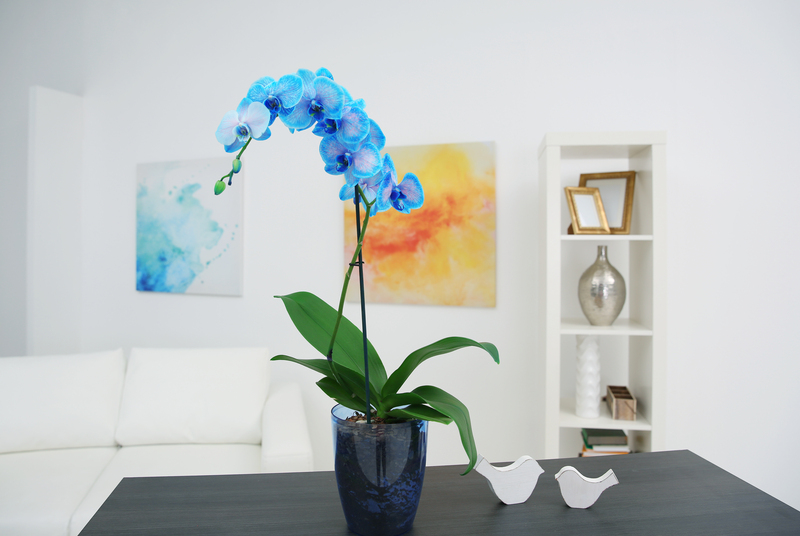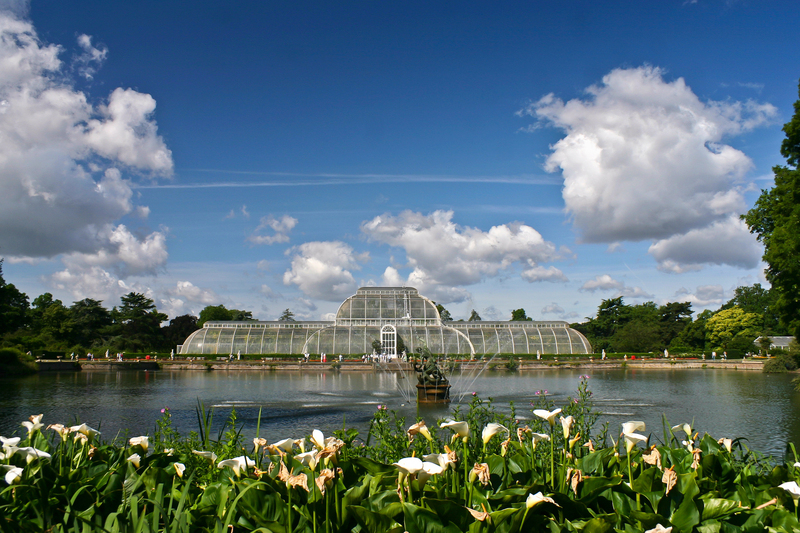Vertical Gardens: A New Dimension to Home Gardening
Posted on 23/08/2025
Vertical Gardens: A New Dimension to Home Gardening
Introduction to Vertical Gardening
In recent years, the concept of vertical gardens has revolutionized the way homeowners approach gardening. Also known as living walls or green walls, these lush installations bring a new dimension to conventional landscaping by utilizing vertical spaces. Whether you're limited by tight spaces in urban apartments or seeking to add a unique aesthetic touch to your home, vertical gardens offer a blend of practicality and elegance.

What Are Vertical Gardens?
A vertical garden is a method of growing plants on a vertically suspended panel, either freestanding or attached to a wall. Unlike horizontal garden beds, vertical gardening systems maximize space efficiency and can transform blank surfaces into thriving ecosystems. Originating centuries ago, with examples like the Hanging Gardens of Babylon, today's vertical gardens harness modern technologies and innovative designs to create sustainable and beautiful spaces.
Why Choose Vertical Gardens for Home Gardening?
- Space Optimization: Perfect for apartments, balconies, and homes with minimal yard space.
- Air Quality Improvement: Living walls filter indoor air pollutants and provide fresh oxygen.
- Enhanced Aesthetics: Vertical gardens introduce a bold, contemporary look to any indoor or outdoor area.
- Temperature Regulation: Green walls can help insulate homes, keeping interiors cooler in summer and warmer in winter.
- Biodiversity Promotion: They attract beneficial pollinators and provide habitats for small wildlife.
Environmental Benefits of Vertical Gardens
Vertical gardening systems bring a range of ecological advantages. Green facades reduce urban heat islands, provide insulation, and improve biodiversity within built environments. By absorbing carbon dioxide and releasing oxygen, they enhance air quality both indoors and outdoors. Moreover, by covering unsightly walls and mitigating noise pollution, vertical gardens are making cities more livable and sustainable.
Types of Vertical Gardens for Homes
There are various vertical gardening solutions tailored to different needs and preferences. Below, we highlight the most popular types:
- Modular Panel Systems: Consist of interlocking panels or trays filled with soil or hydroponic mediums, ideal for creating custom designs on walls.
- Pocket Planters: Fabric or plastic pockets attached to a frame or wall, suitable for small herbs and decorative plants.
- Trellises and Climbing Structures: Support climbing plants like ivy or jasmine, transforming surfaces with natural greenery.
- Freestanding Towers: Stand-alone vertical planters great for patios or small gardens.
- Recycled Pallet Gardens: Inexpensive and eco-friendly, these upcycled gardens are perfect DIY projects for beginners.
How to Start Your Own Vertical Garden
Planning Your Vertical Garden
Before embarking on your vertical garden journey, consider the following basics:
- Location: Indoors or outdoors? Ensure access to sunlight or install appropriate grow lights for indoor gardens.
- Plant Selection: Opt for species suited to your climate, light levels, and personal preference--herbs, succulents, ferns, and flowering plants are popular choices.
- Irrigation System: Decide between self-watering systems, drip irrigation, or manual watering methods.
- Wall Structure: Assess your chosen wall or support to ensure it can bear the weight of your installation.
Materials and Tools Needed
To bring your vertical garden to life, you may need the following:
- Vertical plant panels or pockets
- Potting mix or hydroponic medium
- Seeds or seedlings
- Mounting hardware and brackets
- Watering cans or irrigation system
- Grow lights (for low-light indoor spaces)
Step-by-Step Guide to Creating a Vertical Garden
- Choose Your Structure: Select or build a vertical support structure--modular panels, trellises, or upcycled pallets work well.
- Prepare the Wall: Ensure the wall or support is secure and can withstand moisture. Consider adding a waterproof barrier for indoor gardens.
- Fill with Growing Medium: Use quality potting soil or hydroponic mediums that provide nutrients and drainage.
- Position Your Plants: Start from the bottom and work upwards, spacing plants to allow adequate airflow and growth.
- Install the Irrigation System: Set up a drip or mist system for low-maintenance watering, or water manually if preferred.
- Maintain Your Green Wall: Regularly prune, fertilize, and monitor for pests to keep your vertical garden lush and healthy.
Best Plants for Vertical Gardens
Not all plants are suitable for vertical wall gardens. The best options thrive in minimal soil and are adaptable to varying water and light conditions. Some of the most popular plants for vertical gardening include:
- Herbs: Basil, mint, thyme, oregano, and parsley are great for culinary enthusiasts.
- Succulents: Low-maintenance options like sedum, echeveria, and crassula.
- Flowering Plants: Begonias, petunias, impatiens, and fuchsias add colour and vibrancy.
- Ferns: Boston fern, maidenhair fern, and bird's nest fern bring lushness and texture.
- Climbing Plants: Ivy, philodendron, and pothos cover large areas quickly.
Edible Vertical Gardens
Transform your living walls into a productive vertical vegetable garden. Popular choices include:
- Strawberries
- Cherry tomatoes
- Lettuce and spinach
- Peppers
- Radishes
Maintenance Tips for Vertical Gardens
A common misconception is that vertical gardens are high-maintenance. In reality, with thoughtful setup and routine care, vertical gardening systems can be easy to manage. Essential maintenance tasks include:
- Regular watering (automated irrigation helps!)
- Feeding with a balanced liquid fertilizer
- Pruning to encourage bushier growth
- Inspecting for pests and diseases
- Replacing dead or overgrown plants as needed
Dealing with Common Issues
To keep your vertical garden thriving, monitor for:
- Overwatering or root rot: Use well-draining soil and ensure excess water can escape.
- Pest infestations: Practice integrated pest management by encouraging beneficial insects.
- Nutrient deficiencies: Feed your plants regularly and check for signs of yellowing leaves or stunted growth.
Vertical Gardening Indoors vs Outdoors
Indoor Vertical Gardens
Installing a vertical indoor garden is ideal for those with limited or no access to outdoor space. These living walls enhance interior decor, purify the air, and create a calm, relaxing atmosphere. Choose shade-tolerant plants and supplement with grow lights for best results.
Outdoor Vertical Gardens
Outdoor setups allow for larger installations and more sun-loving plant varieties. Consider the local climate and weatherproof materials. Outdoor vertical gardens can serve as privacy screens, sound barriers, or decorative landscape features.
DIY Vertical Garden Inspiration
Getting creative with your vertical gardening project is half the fun. Here are some innovative ways to build your own living wall:
- Repurposed shoe organizers: Fill with soil and hang on a fence for instant pocket planters.
- Wooden pallets: Line the back with landscape fabric and plant between the slats.
- Gutter gardens: Attach old gutters horizontally to a wall for a tiered planting effect.
- Hanging bottle planters: Upcycle plastic bottles and suspend them from a frame for easy-access herb gardens.
- Stacked pots or towers: Create vertical height with stacked terracotta pots or purpose-built towers for strawberries and leafy greens.
Vertical Garden Design Tips
To ensure a stunning and functional vertical garden wall, keep these design elements in mind:
- Layering and Texture: Combine plants with different leaf shapes, sizes, and colours for visual depth.
- Colour Coordination: Plan for seasonal blooms and foliage changes for year-round interest.
- Accessible Watering: Make sure all plants are easy to reach for care and maintenance.
- Safe Structural Support: Use quality materials and secure installation to prevent accidents or wall damage.
- Sustainability: Choose native, drought-resistant species where possible to conserve resources.

The Future of Vertical Gardening
As urbanization accelerates and outdoor space becomes a premium commodity, green walls and indoor vertical gardens are poised to play a crucial role in sustainable city living. Innovations in hydroponics, irrigation, and modular systems are making home vertical gardens more accessible, affordable, and easy to maintain than ever before.
*From eco-friendly urban farming to biophilic design in modern architecture, vertical gardens are not just a trend--they're the future of home gardening. Embracing this new dimension can transform your living spaces, boost your wellbeing, and contribute to a healthier planet.*
Conclusion: Unlock a New Gardening Perspective
Vertical gardening represents a marriage of artistry, ecology, and modern living. No matter the size or style of your home, these innovative gardens offer unparalleled opportunities to grow fresh produce, decorate your space, and contribute positively to the environment. If you're searching for a dynamic and sustainable way to garden, consider adding a vertical garden to your home--it's the ultimate elevation in gardening creativity.
Ready to explore the world of vertical gardens? Start designing your own living wall today and experience the power of gardening in a whole new dimension!
Latest Posts
The Art of Building a Playful and Safe Garden for Children
Discover the Secret to Weed-Free Gardens with 3 Tips
Ignite the Spark: Starting the Neglected Garden Overhaul

